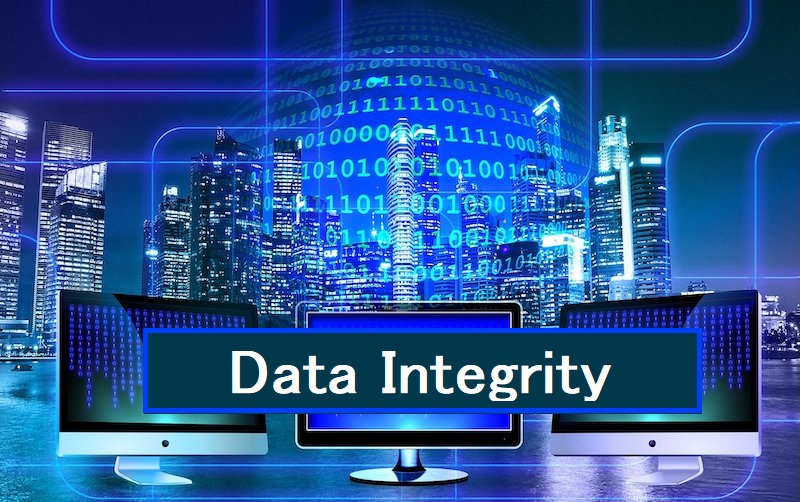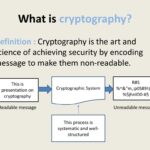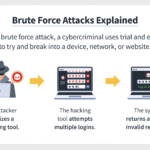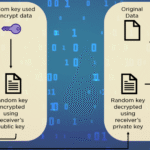In the digital age, where vast troves of information traverse the ether with unprecedented velocity, the concept of data integrity has emerged as an essential pillar of almost every online interaction. Data integrity, in its most rudimentary form, pertains to the accuracy, consistency, and reliability of data throughout its lifecycle. This applies to everything from databases to file storage, and even in communications. The allure of this concept extends beyond mere technical definitions; it invites a deeper contemplation on trust and authenticity, two elements that are increasingly elusive in our hyper-connected world.
The ubiquity of data means that it permeates every aspect of life, whether we are conscious of it or not. Every time you make a purchase online, conduct research, or share information with others, you are contributing to, and interacting with, a vast ecosystem of data. As this complex web expands, the potential for data corruption—through errors, unauthorized access, or malicious intent—rises exponentially. Therefore, understanding data integrity is paramount for individuals and organizations alike.
A core aspect of data integrity involves its accuracy. Data must not only be correct but should also represent the truth it claims to depict. Inaccurate data can lead to flawed decision-making processes, especially within corporate environments where stakes are high. For instance, a financial institution relying on erroneous customer data might make poor lending decisions, leading to significant financial loss or damage to reputation. This underscores why data integrity functions as a first line of defense against misinformation, highlighting its utility as a “best friend” in our digital interactions.
Consistency is another vital dimension of data integrity. This refers to the data’s uniformity across all instances and formats. For example, if a client’s information is recorded in multiple locations—such as a contact management system and an accounting platform—this data must remain consistent to prevent discrepancies. In an era where misinformation can propagate with alarming speed, maintaining consistency across data repositories can help establish a stable information environment, thereby reducing uncertainty.
As we delve deeper into this discussion, it becomes evident that the integrity of data is intimately tied to its reliability. Data is not merely numbers on a spreadsheet or text in a database; it serves as a foundation for critical judgments, strategic planning, and even everyday choices. For example, healthcare data integrity is crucial. Inaccurate medical records can result in inappropriate treatment, exacerbating health issues rather than alleviating them. The ramifications of compromised data integrity in healthcare exemplify the far-reaching consequences of neglecting this often-overlooked principle.
The significance of data integrity strains credulity when one considers the myriad of ways that individuals and organizations can safeguard their information assets. Implementation of robust data validation techniques is a fundamental step. This includes mechanisms like checksums, cryptographic hash functions, and error detection algorithms, which serve to ensure that data remains unaltered during storage and transmission. These methods not only bolster data integrity but also enhance trust in the systems that are leveraging this information.
Moreover, adopting stringent access controls provides a significant layer of protection. By limiting who can view or modify data, organizations can significantly reduce the risk of unauthorized alterations that compromise data integrity. This facet emphasizes another reason data integrity becomes a personal ally; it empowers users to take control over their data, fostering a sense of safety and assurance in their interactions.
However, the conversation around data integrity does not merely dwell on technical solutions. It also invites introspection about ethical considerations and the importance of cultivating a culture of accountability. Organizations wield enormous influence over how data is treated. Ethical stewardship entails being transparent about data usage and prioritizing consumers’ rights to data protection. When organizations prioritize data integrity, they also honor the privacy of individuals and establish trust among their customer base.
The conversation surrounding data integrity cannot escape the inexorable rise of artificial intelligence and machine learning. As algorithms increasingly drive decision-making processes, the integrity of the underlying data becomes even more crucial. AI systems are only as good as the data they are trained upon. Biases, inconsistencies, or inaccuracies in data can lead to flawed algorithms, further perpetuating errors across various applications, from hiring decisions to predictive policing. Thus, ensuring data integrity serves not only as an operational necessity but as a moral imperative in the age of automation.
Another dimension to explore is the psychological inclination towards digital trust. In a world filled with disinformation and pervasive digital espionage, consumers are becoming increasingly wary of the data they share. They seek assurances of data integrity before entering personal information or engaging with online services. By aligning data integrity with a strategy for consumer trust, businesses can enhance their reputational standing, provide transparency, and ultimately foster enduring client relationships.
In summation, data integrity encompasses a multifaceted dimension fundamental to our digital existence. The steadfast accuracy, consistency, and reliability of data are paramount in preserving trust and authenticity in an era defined by rapid information exchange. The commitment to upholding data integrity results in a secure, trustworthy digital environment, fostering healthy interactions, enhancing decision-making processes, and sustaining ethical standards. As such, data integrity is indeed your best friend online, serving as a vital ally navigating the complexities of the digital landscape.








Leave a Comment